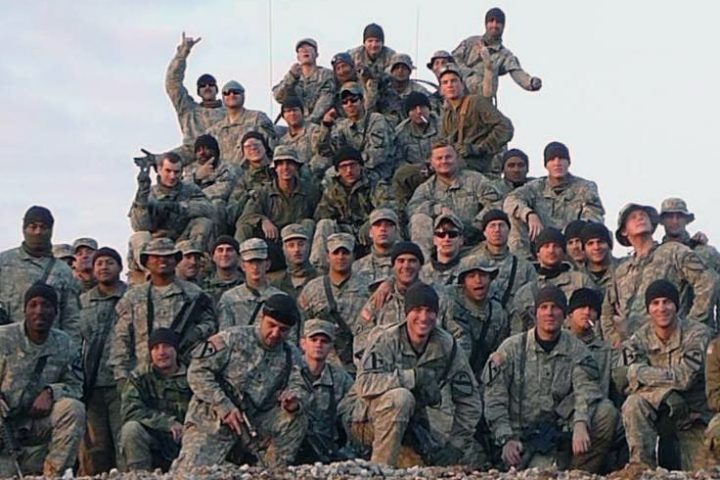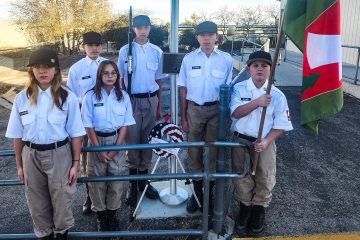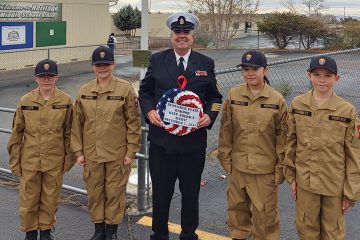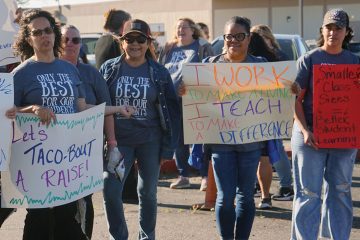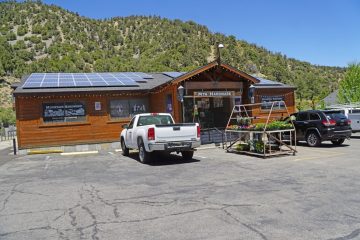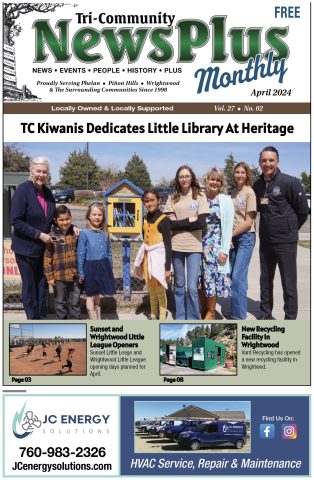FORT IRWIN. Calif. It has been nearly twenty years since Operation Enduring Freedom was launched in Afghanistan in retaliation to the attacks on September 11, 2001. With American forces scheduled to withdraw from the country by September 11, 2021, native Afghan allies such as interpreters, security, food handlers, and others now fear their American allies will leave them behind in the process.
Operation Enduring Freedom began on October 7, 2001. On March 20, 2003, the United States also went to war with Iraq by launching Operation Iraqi Freedom. Since the beginning of these campaigns, over 1,000 linguists have been killed for assisting American and friendly forces.
Maj. Patrick Stallings has been in the United States Army for 16 years and is currently stationed at Fort Irwin, CA, as the Cavalry Operations Trainer. He spoke to NewsPlus on his own behalf and does not speak for the Army or Department of Defense. In his career, he has deployed twice to Iraq and once to Afghanistan. In each of those deployments, he worked closely with native linguists.
Between September 2006 and December 2007, Maj. Stallings, then Lieutenant Stallings, deployed with the 6th Squadron, 9th Cavalry Regiment, 3rd Brigade Combat Team, 1st Cavalry Division stationed out of Fort Hood, Texas, to Forward Operating Base Normandy in the Diyala Province, Iraq. During this deployment, he served as a platoon leader for first platoon, Charlie troop, and assigned to his platoon was an interpreter named Sayf.
Interpreters assist American forces on the ground by going out with them on missions and translating and helping them understand cultural complexities and differences. “Our interpreters, they’re a tremendous part of our team,” says Maj. Stallings. “We absolutely relied on them to help us work with the locals, but we also relied on their expertise in understanding the culture and not just the ability to talk with them. “While interpreters assist on raids and patrols, they do not carry a weapon and are considered non-combatants. But, in certain extreme circumstances, Maj. Stallings has had to amend this rule.
During an early morning mission in 2007 to a town called Baloor that involved all of Charlie troop and a considerable attachment of Iraqi Army soldiers, friendly forces on the ground were ambushed when an improvised explosive device badly injured the Iraqi Army. The explosion was followed by an avalanche of small arms fire that included enemy grenades landing feet away from soldiers. “We did believe we were about to be overrun,” remembers Maj. Stallings. “So yes, I did give my interpreter a weapon we had taken off a dead Islamic State of Iraq combatant because it was clear at that point that we were all fighting for our lives.” The fighting lasted for five hours, and Sayf ended up not discharging a round throughout. When it was all finished, over 20 Iraqi Army and between 5-6 American soldiers required an air evacuation.
By the end of this fourteen-month deployment, the 6th Squadron, 9th Cavalry regiment suffered 26 KIA’s and 110 in the 3rd Brigade Combat Team. In Maj. Stallings’ platoon, every soldier returned home. “I wholeheartedly believe that the reason I was able to bring all of the guys in my platoon back alive was partly because of Sayf. I owe a significant amount of that credit to Sayf and his helping me understand the population and reading the population.
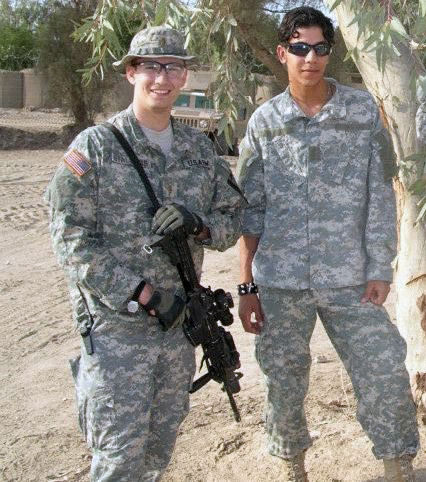
Sayf Sparta first encountered the US Army when he was 17 years old and living in al Dawr, Iraq, in September 2003. It is the same town that Saddam Hussein was captured in two months later. After leaving school one day, he ran across an American patrol and was immediately impressed by them. “I kind of liked how the soldiers dressed up with their equipment. How they held their guns and how their vehicles looked.” This led to Sparta going to the nearest base and attempting to enlist to help the Americans. Initially, he was denied. But after returning multiple times, he was allowed to join the Iraqi Civil Defense Corps. This led to him becoming an interpreter for the Army in 2006, after becoming fluent in English. His salary was $1,000 a month, enough for him to provide for himself and his family.
Sparta says he chose to help the Army because he saw that they were trying to help the country get rid of the dictator at the time. He did this knowing that if he were caught, the consequences would be grave. “It’s his life because he’s gonna dress up like American forces[as an interpreter], so they’re gonna think he’s an infidel,” says Sayf about how their countrymen view those who collaborate with Americans. “They’re gonna think he is the one who’s bringing all the information for American forces, so he’s the first target for terrorists to kill because when they kill the translator, the whole mission will fail because no one can communicate.” Besides the risks to themselves, the family members of those who help US forces also become targets for the enemy. Sayf continued to work as a translator until 2010, when things got too dangerous for him to remain in the country. With the help of friends, he applied for a Special Immigrant Visa (SIV) and came to the United States. The process took him approximately nine months. Today, he lives in Sacramento, CA, and owns a used car dealership. For Sayf, getting the SIV was a quick process. But for most, it can take several years to navigate if you are successful at all.
Abdul Hadi lives in Lexington, KY. He has lived there with his family since arriving in the US in 2017. Before that, he lived in his native home of Afghanistan and worked at Camp Nathan Smith (CNS) in Kandahar from 2004 until 2013. He worked there as a Security Guard Supervisor for the military base. Besides doing his job as security, he also helped military forces as an interpreter. “The American forces since they came in 2001 to Afghanistan, they’ve helped our people. They made a lot of changes out there,” says Hadi. “They built schools, they built gyms, and they built roads, and they brought education.” This is what made him decide to help them because he saw they were there to improve things for the people of Afghanistan. Prior to the US arriving, Hadi says that no girls were in school. “Before 2001, there was no female nurses in Afghanistan. But now, there’s a thousand female nurses out there. There is a thousand female doctors out there now. This is a big opportunity for our people.”
On October 27, 2011, CNS was attacked by the Taliban in a coordinated strike. Twenty minutes before the attack, Hadi remembers that his brother, who also worked at the base as security, informed command of a report from a neighbor that enemy fighters were seen with weapons on a nearby roof. “My brother gave a report to them quickly. But they did not take action quick because they were thinking every single day I get the same report.” The attack resulted in intense fighting that wounded Hadi’s brother in the arms and legs. Hadi manned a machine gun during the melee and said he expended over a thousand rounds as friendly forces confronted and repelled the enemy.
After nine years of helping American forces in Afghanistan, Hadi decided to apply for an SIV. It took three and a half years for his application to be approved. He never got a reason as to why it took so long. But he suspects that it was because, during the long process, he and his wife had kids. So, this required his application to be updated. In Hadi’s case, everything ended up working out. He, his wife, and his children eventually all made it safely to the US. Today, he works as a truck driver and owns his own semi. But for many others, the waiting process proved to be too long as the Taliban is actively hunting for those who have helped their enemies.
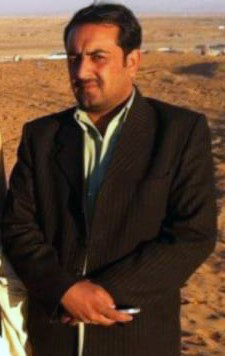
This was the case with a friend of Hadi’s and someone known to Maj. Stallings, a security guard who went by Nader. He worked at CNS from 2003-2011. According to Hadi, Nader tried but was unsuccessful in obtaining an SIV. On May 10, 2021, Nader was in district 10 in Kandahar buying food when the Taliban drove up on a motorbike and shot him in the head, killing him.
Since 2014, over 300 translators or family members have been killed by terrorist groups in Afghanistan. Many while waiting for the SIV’s. A 2020 Inspector General audit of the SIV program found that only one person was assigned to processing the security checks for the over 18,000 backlogged applications.
Muhammad currently lives in Kandahar and is one of the many Afghan allies waiting for an SIV. We are withholding his surname for safety reasons. From 2003-2013, Muhammad worked security at CNS, where he was known as Major Smiley. He applied for an SIV in 2014 but has not heard anything back. For him and his family, life in Kandahar is hard and uncertain. “My life is dangerous right now. And the Taliban, they’re going to put me in jail or kill me.” He plans to submit a new SIV application again soon.
For Maj. Stallings, the entire ordeal boils down to trust. “They trusted us, and we trusted them with our lives in many cases. So we should deliver on that trust.”
